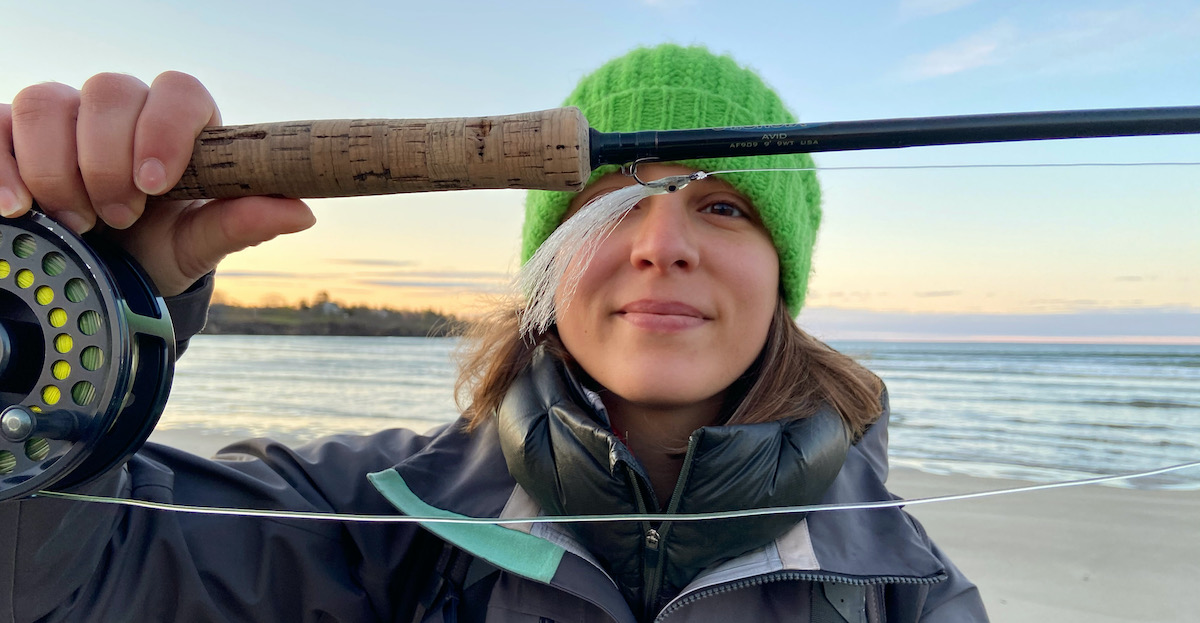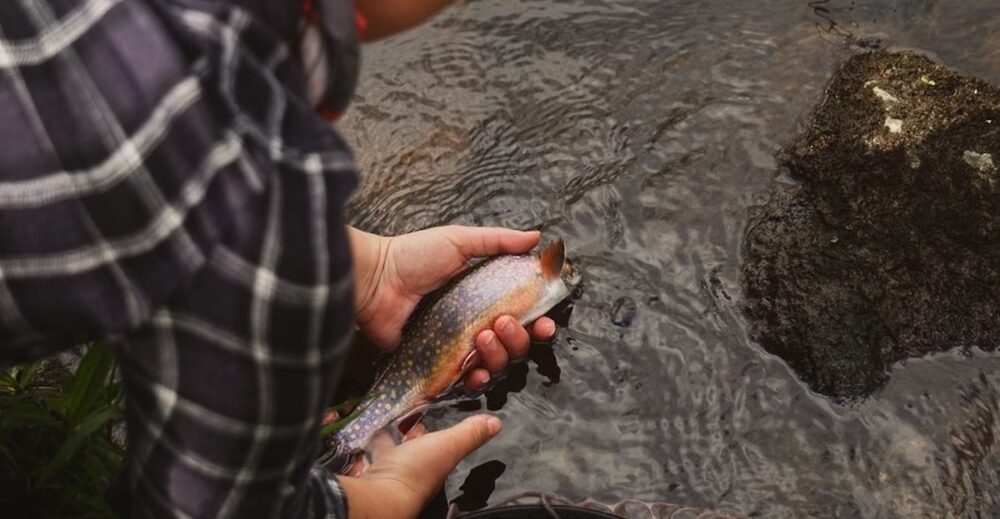
Sideline Stories: Bri Dostie, Confluence Collective
Maine has 2,600+ lakes and ponds…without names. Waters you’ve never heard of because we just don’t talk about them, or don’t have the language to identify them aside from typical Mainer directions of “off the logging road with the orange flagging tape.” Someone down the line may have deemed waters too insignificant for denotation, or simply wiped identity when words sounded too complex to fit in maps. Or maybe we were too distracted with 6,000+ other lakes and ponds full of beauty to explore what we didn’t know.
There’s so much we can’t put words to, can’t look up in research to prepare expectations for an experience — and that’s a beautiful space to become acquainted with through fly fishing.
I grew up in the woods of Maine as a curious kid who memorized birds and turned over logs in search of salamanders. My mother supported time outside by traversing streambeds and climbing trees in stride. She introduced me to fishing, borrowing her father’s spinning rod to cast over culverts and into granite pools of her own childhood romping grounds, sharing encounters with slimy and spotted brook trout. She inspired curiosity to learn by seeing and doing, by feeling until the words took form and knowledge was gained. There was always something new to see if you looked for it.
Fly fishing became the adolescent iteration of nature-based obsession, this time as an excuse to see then-boyfriend and explore new water. It also became a meditative balm for growing pains, disappointments, uncomfortable changes, and other challenges that come with growing older. For every hardship, there were welcoming waters ready to soothe the soul. Interpersonal relationships became more complicated and uncertainties more visceral —fly fishing offered a shared language to release stress and be reminded of connectedness.
As imperfect humans, we never stop changing and growing, despite the stagnation we may find or create for ourselves. There is always a different way to think about something, a skill to improve, a feeling to explore and fly pattern that just might do the trick. Every angler who picks up a rod and reel is signing up for a life of learning and deep connection to the wild places around us. You learn to fight harder, think deeper, and wade more thoughtfully across rivers and streams once you get to know their unique character and potential.
These days, I’m thankful for the solitude a riverbank can provide to parse what is happening around us. We are suddenly facing what we don’t know regularly, feeling its impact, and wondering what to do. There have always been waters we don’t know by name — to be swimming in them daily is a different learning curve entirely. My hope is that we may all find solace by embracing ultimate truths: we can learn, we can do better, we can be mindful, and we can take a small step while we envision destination. A little time on the water just might help us see what is possible, and remind us of all we still have to be grateful for.
A note from the author: Bri Dostie is Founder of Confluence Collective, providing educational and mindful interactions on the water for those who don’t fit the fly fisher archetype. As a sport most often associated with older white men, there is much we can do to create a more accessible and inclusive culture on the riverbank to ensure the benefits of fly fishing are available to all with curiosity.
While COVID-19 has postponed many group fly fishing events, be sure to visit the Confluence Collective website for more information on what you can do to learn and stay fishy in quarantine: www.confluencecollective.org and follow on social media for regular updates. Stay well, Maine!
